Navigating the healthcare system can feel complex, especially when managing new or ongoing health issues. At the centre of this process is what we call the patient journey a path that starts when a person first notices a health concern and continues through diagnosis, treatment and long-term care.
Healthcare professionals (HCPs) play a pivotal role throughout this journey. General practitioners (GPs), specialists, nurses and allied health providers guide patients through each stage, ensuring that care is accurate, timely and tailored to individual needs. By understanding how healthcare professionals influence the patient journey, patients and providers can work together to achieve better health outcomes.
What Is the Patient Journey?
The patient journey refers to the complete series of interactions and decisions a person experiences while accessing healthcare. Although the details vary between individuals, the structure typically includes five main stages:
Awareness of Health Issues
The journey begins when a person becomes aware of a symptom or health concern. They might search online for information, speak to friends or family, or reflect on their lifestyle. At this stage, many decide to seek medical advice from a general practitioner.
Considering Healthcare Options
Next, patients explore their options. They often search online for local clinics, look for GP services near them, or evaluate the range of primary healthcare services available in their area. Accessibility, clinic reputation and available services are major deciding factors.
Choosing a Healthcare Provider
After reviewing their options, patients book an appointment with a GP or healthcare provider. This moment marks a critical shift from recognising a problem to actively seeking professional support.
Receiving Medical Care
During this stage, healthcare professionals assess the condition, provide a diagnosis and recommend treatment. In many cases, they refer patients to specialists or allied health providers such as psychologists or physiotherapists. Clear communication and informed decision-making are key during this phase.
Ongoing and Preventative Care
Healthcare does not end with one visit. Many patients need ongoing support whether through chronic disease management, mental health care, follow-ups, or preventive screenings. Regular contact with healthcare professionals strengthens care continuity and supports long-term health outcomes.
How Healthcare Professionals Guide the Patient Journey
Healthcare professionals play a direct role in shaping each stage of the patient journey. Their clinical expertise, guidance and care coordination influence the speed, quality and success of every patient’s experience.
Early Assessment and Patient Guidance
GPs are often the first point of contact. They listen carefully, conduct thorough assessments and help patients understand their symptoms. By providing reassurance and outlining next steps, they set the tone for a positive healthcare experience.
Developing Personalised Treatment Plans
Once they confirm a diagnosis, healthcare professionals recommend treatment options tailored to the patient’s medical condition, lifestyle and goals. They may prescribe medication, suggest lifestyle changes, or refer the patient to an appropriate allied health provider. By involving patients in the planning process, they foster confidence and collaboration.
Coordinating Multi-Disciplinary Care
In many cases, patient care involves multiple providers. For example, a person with diabetes may need input from a GP, a dietician and a podiatrist. Healthcare professionals ensure effective communication between these services, reducing delays and avoiding duplication.
Monitoring Progress and Managing Chronic Conditions
As treatment continues, HCPs track patient progress and adjust plans when needed. For patients with chronic illnesses like hypertension, asthma, or depression, this ongoing relationship ensures timely interventions, better symptom control and improved quality of life.
Promoting Preventative Health Measures
In addition to treating illness, healthcare professionals also focus on preventative health care. They encourage routine health checks, immunisations, cancer screenings and early intervention strategies. This preventative approach helps detect issues early and reduce long-term complications.
The Importance of Communication and Continuity of Care
Consistent, high-quality communication is essential for positive patient experiences. When healthcare professionals explain diagnoses and treatments in clear, relatable terms, patients feel empowered to take an active role in their health.
At the same time, continuity of care seeing the same provider over time builds stronger relationships. A GP who understands a patient’s medical history, lifestyle and personal preferences can deliver more personalised and effective care. This is especially valuable in managing ongoing conditions or mental health concerns.
Supporting a Collaborative Approach to Healthcare
Effective care does not happen in isolation. When healthcare professionals work together across disciplines, patients experience a more seamless journey. Shared access to medical records, well-managed referrals and open communication between providers all contribute to a better, more efficient system.
This collaborative model is particularly important in primary care settings, where GPs often act as coordinators of care. By taking a whole-person approach and involving the right professionals at the right time, the healthcare team ensures that every patient receives the best possible support.
Why the Patient Journey Matters for Health Outcomes
Every step of the patient journey impacts health outcomes. When healthcare professionals provide accurate information, timely treatment and consistent follow-up, patients are more likely to recover quickly, manage chronic conditions effectively and stay engaged in their care.
By contrast, when communication breaks down or care is fragmented, patients may feel confused, delay treatment, or disengage entirely. That’s why supporting healthcare professionals through systems, training and integrated care pathways is essential to improving both individual and community health.
Conclusion
Healthcare professionals play an essential role in every aspect of the patient journey. From the first consultation to long-term condition management, they guide, inform and support patients through a complex healthcare system. Their ability to deliver coordinated, patient-centred care makes all the difference in achieving positive health outcomes.
As the healthcare landscape evolves, practices that prioritise strong provider relationships, continuity of care and communication will continue to stand out. Lakes Family Medical Centre embraces this approach by offering accessible, comprehensive healthcare services for individuals and families. With a focus on preventative care, chronic disease management and seamless care coordination, the clinic supports patients at every stage of their health journey ensuring consistent, compassionate and high-quality care.




